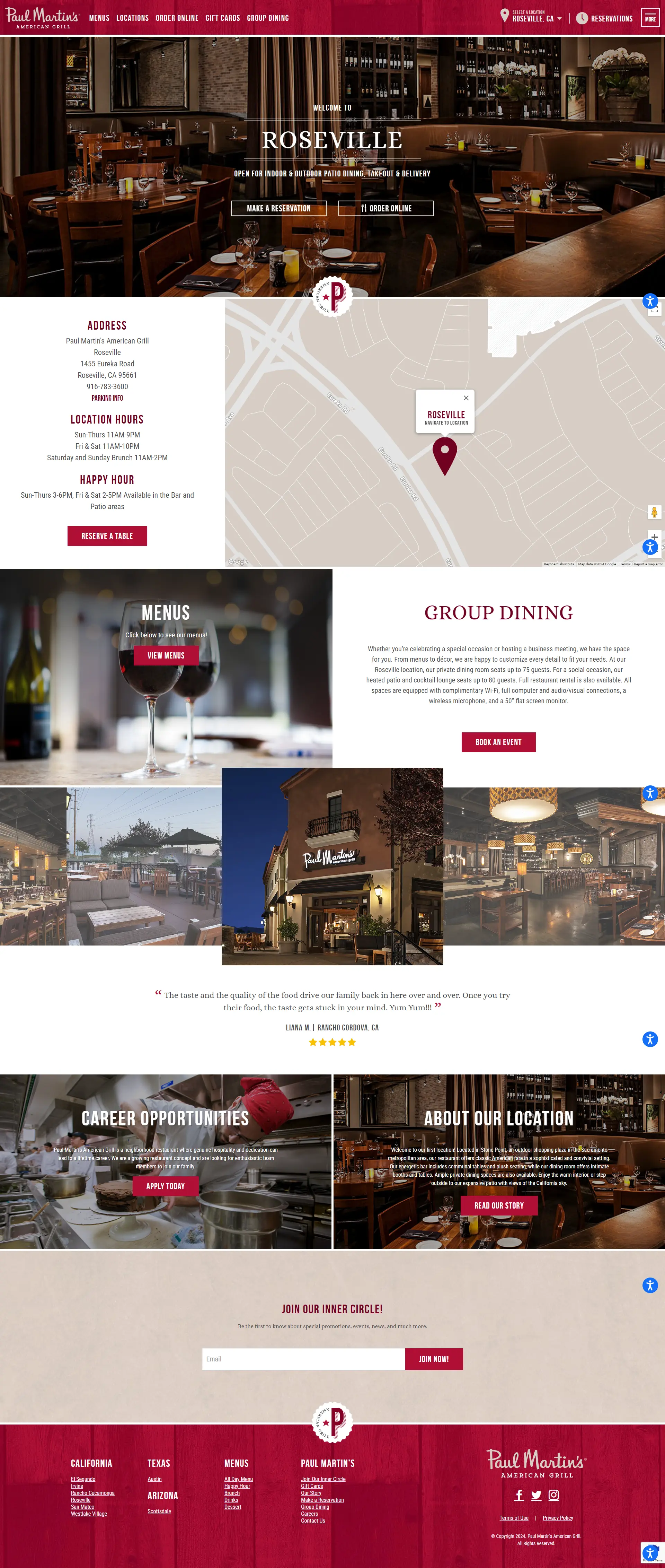TLDR: Want to thrive in real estate? Find your niche! Specializing in a specific property type, client group, or market need can boost your expertise, attract the right clients, and increase your earnings. This article explores different niches and provides tips for building your niche dominance.
Executive Summary
In the competitive real estate landscape, specialization is key to standing out and achieving success. This article explores the concept of real estate niches, examining various categories such as property types (residential, commercial, land), client-focused niches (first-time homebuyers, investors, seniors), and specialized markets (green real estate, vacation homes, probate). We delve into the benefits of niche expertise, including increased knowledge, targeted marketing, stronger client relationships, and higher earning potential. The article also provides practical guidance on building your niche expertise through education, networking, marketing, and technology. By focusing on a specific segment of the market and developing specialized knowledge, real estate professionals can establish themselves as trusted advisors and achieve greater success.
Introduction
The real estate world is a vast and dynamic landscape. While some agents thrive by being generalists, many find greater success by carving out a specialized niche. Think of it like a bustling city – you can find everything you need, but sometimes you’re looking for that unique boutique or specialized store. That’s where niche real estate comes in. By focusing on a specific segment of the market, agents can cultivate deep expertise, build a strong reputation, and attract a loyal clientele. This article will explore the compelling reasons to embrace a niche, delve into various niche categories (including a deep dive into probate), and provide strategies for establishing yourself as a go-to expert.
Why Specialize?
In a competitive market where agents are vying for attention, differentiation is key. Specialization allows you to stand out from the crowd and become a recognized authority in your chosen area. This translates to:
- Enhanced Expertise: Focusing on a specific area allows you to develop an unparalleled depth of knowledge. This translates to better service, more informed advice, and ultimately, greater client satisfaction.
- Targeted Marketing: Niche marketing allows you to hone your message and reach the right audience with laser precision. Instead of casting a wide net, you’re speaking directly to the needs and interests of a specific group. This can be far more effective and cost-efficient.
- Stronger Client Relationships: When you truly understand your clients’ needs and goals, you build trust and foster lasting relationships. This leads to repeat business and valuable referrals.
- Increased Earning Potential: By focusing on a niche with high demand or specialized services, you can command premium prices and potentially increase your income.
Navigating the Niche Landscape
The real estate market offers a diverse array of niches, each with its own unique characteristics and opportunities. We’ll explore some of the most common categories, including:
- Property Type: From single-family homes and condos to commercial buildings and vacant land, the type of property you specialize in can significantly shape your business.
- Client Focus: Are you passionate about helping first-time homebuyers navigate the market? Do you enjoy working with investors or assisting seniors with downsizing? Defining your ideal client is crucial.
- Specialized Needs: This category encompasses niches like green real estate, vacation homes, and distressed properties, catering to specific buyer preferences or market conditions.
Spotlight on Probate
One niche we’ll examine in detail is probate real estate, a specialized area that requires a unique blend of real estate knowledge and legal understanding. We’ll explore the intricacies of working with estates, navigating court procedures, and assisting families during a sensitive time.
Building Your Niche Foundation
This article will also provide practical guidance on how to establish yourself as a niche expert, including:
- Education and Certifications: Acquiring specialized knowledge and credentials can enhance your credibility and demonstrate your commitment to your chosen niche.
- Networking and Building Relationships: Connecting with key players in your niche, such as attorneys, estate planners, or developers, can open doors to new opportunities.
- Marketing and Branding: Crafting a strong brand identity and targeted marketing strategy is essential for attracting your ideal clients.
- This includes securing a memorable domain name that reflects your niche. For example, if you specialize in probate real estate, consider a .Realty domain name like [yourname]probate.realty (Not available on GoDaddy and offered exclusively by MNKY.agency on our domain store at: https://shop.mnky.agency).
- This includes securing a memorable domain name that reflects your niche. For example, if you specialize in probate real estate, consider a .Realty domain name like [yourname]probate.realty (Not available on GoDaddy and offered exclusively by MNKY.agency on our domain store at: https://shop.mnky.agency).
- Technology and Tools: Leveraging the right technology and tools can streamline your workflow and enhance your service offerings.
By the end of this article, you’ll have a clear understanding of the power of niche real estate and be equipped with the knowledge to choose the right niche for you and build a thriving business.
Property Type Niches
One of the most common ways to specialize in real estate is to focus on a specific property type. This allows you to develop in-depth knowledge of the nuances of that market segment, from construction and design to pricing and legal considerations. Here’s a look at some popular property type niches:
Residential Real Estate
- Single-Family Homes: This classic niche caters to the largest segment of the market, encompassing everything from starter homes to sprawling estates. Understanding local zoning regulations, school districts, and neighborhood amenities is crucial for success in this area.
- Condos and Townhouses: This niche focuses on attached dwellings, often appealing to first-time buyers, young professionals, and those seeking a low-maintenance lifestyle. Expertise in homeowner association rules, common area maintenance, and financing options is essential.
- Luxury Homes: Catering to affluent clients seeking high-end properties requires a deep understanding of luxury amenities, architectural styles, and the discerning tastes of this clientele. Strong networking skills and discreet marketing are essential.
Commercial Real Estate
- Office Buildings: This niche involves working with businesses of all sizes to find suitable office space, whether it’s a small suite or a multi-story corporate headquarters. Understanding lease agreements, zoning regulations, and market trends is crucial.
- Retail Spaces: This niche focuses on properties used for retail businesses, from small storefronts to large shopping centers. Knowledge of foot traffic patterns, lease terms, and tenant improvements is vital.
- Industrial Properties: This niche deals with properties used for manufacturing, warehousing, and distribution. Understanding zoning regulations, environmental concerns, and specialized building requirements is key.
Land
- Vacant Land: This niche involves working with buyers and sellers of undeveloped land, whether it’s for residential development, commercial use, or recreational purposes. Knowledge of zoning regulations, environmental assessments, and land development processes is essential.
- Development Sites: This niche focuses on land suitable for large-scale development projects, such as residential subdivisions or commercial complexes. Working with developers, investors, and government agencies requires strong negotiation and project management skills.
- Agricultural Land: This niche specializes in farms, ranches, and other properties used for agricultural purposes. Understanding soil types, water rights, and agricultural regulations is crucial.
Choosing the Right Property Type Niche
When choosing a property type niche, consider your interests, experience, and local market conditions. Are you passionate about historic homes, modern architecture, or sustainable building practices? Is there a strong demand for a particular property type in your area? By aligning your interests with market opportunities, you can build a successful and fulfilling real estate career.
Client-Focused Niches
While some agents specialize in property types, others focus on serving specific client demographics. This approach allows you to tailor your services and marketing to the unique needs and preferences of a particular group. Here are some examples of client-focused niches:
First-Time Homebuyers
This niche involves guiding first-time buyers through the often daunting process of purchasing their first home. Patience, education, and strong communication skills are essential for building trust and ensuring a smooth transaction. This often involves:
- Extensive Education: Explaining complex concepts like mortgages, closing costs, and home inspections in a clear and concise way.
- Emotional Support: Providing reassurance and guidance throughout the process, addressing anxieties and uncertainties.
- Financial Counseling: Helping buyers understand their budget, secure financing, and make informed decisions.
Investors
This niche caters to individuals or groups looking to purchase properties for investment purposes. A deep understanding of market trends, financial analysis, and property management is crucial. This often involves:
- Identifying Profitable Opportunities: Analyzing market data, identifying undervalued properties, and assessing potential risks and rewards.
- Due Diligence: Conducting thorough property inspections, reviewing financial records, and negotiating favorable terms.
- Property Management: Assisting with tenant screening, rent collection, and property maintenance.
Relocation
This niche focuses on assisting individuals and families who are relocating to a new area. Knowledge of local communities, schools, and amenities is essential for helping clients find the right home and settle into their new surroundings. This might include:
- Area Tours: Showcasing neighborhoods, highlighting key amenities, and providing insights into local culture and lifestyle.
- Networking: Connecting clients with local service providers, schools, and community resources.
- Logistics: Assisting with moving arrangements, temporary housing, and other relocation logistics.
Seniors
This niche specializes in helping senior citizens navigate the real estate market, whether they are downsizing, moving to a retirement community, or managing their estate. Sensitivity, empathy, and knowledge of senior-specific housing options are crucial. This often involves:
- Downsizing: Assisting with decluttering, organizing, and selling their current home.
- Retirement Communities: Providing information on different types of senior living options and helping clients find the right fit.
- Estate Planning: Working with families to manage the sale of a property after a loved one has passed away.
Probate
The Probate Real Estate niche requires specialized knowledge of the legal and financial aspects of handling real estate assets in a deceased person’s estate. Working with executors, attorneys, and beneficiaries requires sensitivity, discretion, and strong ethical standards. Key aspects of this niche include:
- Understanding Probate Law: Navigating court procedures, legal documents, and inheritance laws.
- Property Valuation: Accurately assessing the value of the property for estate tax purposes and sale.
- Marketing and Sales: Effectively marketing the property to potential buyers and negotiating offers.
- Ethical Considerations: Maintaining confidentiality, acting in the best interests of the estate, and adhering to legal and ethical guidelines.
Choosing a Client-Focused Niche
When choosing a client-focused niche, consider your personal values, communication style, and the demographics of your local market. Are you passionate about working with families, seniors, or investors? Do you have experience in a particular industry or community that could be valuable to a specific client group? By aligning your skills and interests with the needs of your target audience, you can build a successful and rewarding real estate business.
Niche Markets Based on Specific Needs
Beyond property types and client demographics, real estate offers a range of niche markets catering to specific buyer preferences or market conditions. These niches often require specialized knowledge and marketing strategies to effectively reach the target audience. Here are a few examples:
Green Real Estate
This niche focuses on environmentally friendly and sustainable homes, appealing to buyers who prioritize energy efficiency, healthy living, and reduced environmental impact. Knowledge of green building materials, energy-efficient technologies, and sustainable certifications is essential. This might involve:
- Identifying Eco-Friendly Features: Recognizing and highlighting features like solar panels, energy-efficient appliances, and sustainable landscaping.
- Understanding Certifications: Familiarity with green building certifications like LEED (Leadership in Energy and Environmental Design) and ENERGY STAR.
- Educating Buyers: Explaining the benefits of green homes, including lower utility bills, improved indoor air quality, and reduced carbon footprint.
Vacation Homes
This niche specializes in second homes, vacation rentals, and investment properties in popular tourist destinations. Understanding local market trends, rental regulations, and property management options is crucial. This might involve:
- Market Knowledge: Staying informed about popular vacation destinations, seasonal demand, and rental rates.
- Property Management: Connecting clients with reputable property management companies to handle rentals and maintenance.
- Investment Analysis: Helping clients evaluate the potential return on investment for vacation rental properties.
REO (Real Estate Owned) Properties
This niche involves working with banks and lenders to sell properties that have been foreclosed upon. Understanding the foreclosure process, negotiating with banks, and handling property repairs are key skills. This often involves:
- Bank Negotiations: Working with banks to negotiate favorable purchase prices and terms.
- Property Assessment: Evaluating the condition of the property and identifying any necessary repairs.
- Marketing: Effectively marketing REO properties to potential buyers, highlighting their value and potential.
Short Sales
This niche focuses on assisting homeowners who are facing financial hardship and need to sell their property for less than the amount owed on their mortgage. Negotiating with lenders, managing timelines, and providing emotional support are crucial. This might include:
- Lender Negotiations: Working with lenders to obtain approval for a short sale, negotiating terms and timelines.
- Financial Counseling: Helping homeowners understand their options and navigate the short sale process.
- Emotional Support: Providing guidance and support to homeowners during a challenging financial situation.
Choosing a Niche Based on Specific Needs
When choosing a niche based on specific needs, consider your interests, experience, and local market conditions. Are you passionate about sustainable living, vacation rentals, or helping homeowners in distress? Is there a demand for a particular type of property or service in your area? By aligning your skills and interests with market opportunities, you can build a successful and fulfilling real estate business.
Building Your Niche Expertise
Once you’ve identified your ideal niche, it’s time to build your expertise and establish yourself as a go-to resource. This involves a multi-faceted approach that combines education, networking, marketing, and technology.
Education and Certifications
Deepening your knowledge is crucial for gaining credibility and providing exceptional service. Consider pursuing:
- Specialized Courses and Designations: Look for courses and certifications specific to your niche, such as Accredited Buyer’s Representative (ABR) for working with buyers, Seniors Real Estate Specialist (SRES) for serving seniors, or Certified Commercial Investment Member (CCIM) for commercial real estate.
- Continuing Education: Stay abreast of industry trends, legal updates, and market changes through ongoing education and professional development opportunities.
- Local Market Expertise: Become an expert on your local market, including neighborhoods, schools, zoning regulations, and community resources.
Networking and Building Relationships
Building a strong network is essential for generating referrals and expanding your reach. Focus on:
- Key Professionals: Connect with professionals related to your niche, such as attorneys specializing in probate, estate planners, contractors, or mortgage brokers.
- Community Involvement: Engage in local community events, join relevant organizations, and build relationships with residents and business owners.
- Online Networking: Utilize social media platforms, online forums, and professional networking sites to connect with potential clients and industry professionals.
Marketing and Branding
Creating a strong brand identity and targeted marketing strategy is essential for attracting your ideal clients. This includes:
- Defining Your Brand: Develop a clear brand message that reflects your niche expertise and resonates with your target audience.
- Targeted Marketing: Utilize online and offline marketing channels that reach your ideal clients, such as social media advertising, local publications, or community events.
- Content Marketing: Create valuable content that showcases your expertise and educates your audience, such as blog posts, articles, or videos.
- Professional Website: Establish a professional website with a .Realty domain name that reflects your niche, like
[yourname]probate.realty(Not available on GoDaddy and offered exclusively by MNKY.agency on our domain store at: https://shop.mnky.agency). This not only enhances your credibility but also improves your online visibility.
Technology and Tools
Leveraging technology can streamline your workflow, enhance your service offerings, and improve client communication. Consider:
- CRM Systems: Utilize customer relationship management (CRM) software to manage leads, track client interactions, and automate marketing tasks.
- Real Estate Software: Explore specialized real estate software for property valuation, market analysis, and transaction management.
- Virtual Tours and 3D Modeling: Enhance property listings with virtual tours and 3D models to provide immersive experiences for potential buyers.
- Social Media Management Tools: Utilize social media management tools to schedule posts, track engagement, and analyze results.
By consistently investing in your professional development, building strong relationships, and leveraging effective marketing strategies, you can establish yourself as a trusted advisor and leader in your chosen niche.
Conclusion
In the real estate real estate world, specialization offers a powerful pathway to success. By focusing on a specific niche, you can cultivate deep expertise, build a strong reputation, and attract a loyal clientele who value your specialized knowledge and personalized service.
Reaping the Rewards of Niche Expertise
Throughout this article, we’ve explored the numerous benefits of choosing a niche, including:
- Increased Expertise: Becoming a recognized authority in your chosen area.
- Targeted Marketing: Reaching the right clients with laser precision.
- Stronger Client Relationships: Building trust and fostering long-term connections.
- Increased Earning Potential: Commanding premium prices for specialized services.
Finding Your Perfect Fit
Choosing the right niche is a personal decision that should align with your interests, skills, and values. Whether you’re drawn to a specific property type, client demographic, or specialized market, consider the following factors:
- Passion and Interest: Choose a niche that genuinely excites you and aligns with your long-term goals.
- Market Demand: Research your local market to ensure there’s sufficient demand for your chosen niche.
- Skills and Experience: Assess your existing skills and experience to determine which niche best suits your strengths.
- Competitive Landscape: Analyze the competition in your chosen niche to identify opportunities for differentiation.
By carefully considering these factors and investing in your professional development, you can carve out a successful and fulfilling career in the ever-evolving world of real estate. Remember, specialization is not just about limiting your focus; it’s about amplifying your impact and becoming an invaluable resource to your clients.
Need help carving out your niche?
Give us a call, or book a free consultation with my team. We’ll guide you all the way, referring you to the right people and and get set you up with all the tools and systems you need to succeed.
Frequently Asked Questions About Real Estate Niches
Absolutely! While it’s good to start with a focus, you can always adjust your niche as your interests and the market evolve.
This niche involves identifying profitable investment opportunities, conducting due diligence, and potentially assisting with property management.
Consider your interests, skills, and the local market. What are you passionate about? Where do your strengths lie? What are the demands in your area?
Yes, this can be a lucrative niche, especially in areas with development potential. It often involves working with investors, developers, and builders.
These are distressed properties that often require specialized knowledge of foreclosure procedures and bank negotiations.
This includes single-family homes, condos, townhouses, luxury homes, and more.
Profitability varies by location and market conditions. However, niches like luxury real estate, commercial real estate, and investment properties often have higher earning potential.
This can include specializing in office buildings, retail spaces, industrial properties, or land development.
This involves guiding and educating first-time buyers through the home buying process, often requiring patience and strong communication skills.
This involves understanding the vacation rental market, local regulations, and property management options.
A real estate niche is a specialized segment of the market. This could be a specific property type (like condos or luxury homes), a certain client demographic (like first-time home buyers or seniors), or a specialized need (like eco-friendly homes or investment properties).
This niche focuses on environmentally friendly and sustainable homes, requiring knowledge of energy-efficient technologies and green building certifications.
This niche involves handling the sale of real estate owned by a deceased person, requiring knowledge of probate law and estate settlement procedures.
This includes understanding probate law, property valuation, marketing, and ethical considerations.
This focuses on helping seniors with their unique housing needs, such as downsizing, relocating to retirement communities, or managing estate sales.
It requires sensitivity and discretion when working with families and navigating legal complexities.
Specializing helps you become an expert in a specific area, making you more valuable to clients. It allows for targeted marketing, stronger client relationships, and potentially higher income.

















